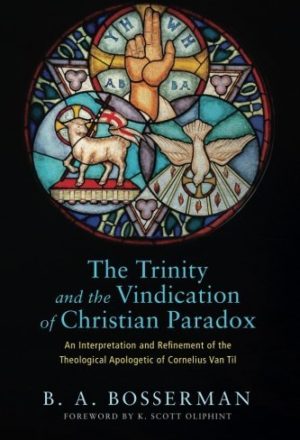Before we outgrew our space, Gospel Church Durango met between a bar and a yoga studio. One Sunday morning the bar decided to have a punk rock breakfast that sounded like it was in the room with us. The concert culminated in a long death growl at the exact moment I was breaking the bread for communion. It turned out to be an oddly fitting accompaniment to the symbol of Jesus’ body being broken for us. We didn’t mind, we had a good relationship with them. We would frequent the restaurant and bar, and the owners came and joined us for one of our church feasts.
The yoga studio on the other side was much quieter than our rowdy neighbors. We would often greet a train of mostly early middle-aged women carrying yoga mats and sporting yoga pants on their way to class. They moved with a quiet intention. They never hosted rowdy events, and were generally not interested in a stop-and-chat. They were great neighbors, and we got along well. If our joyful worship music ever bothered them, they never said anything about it.
As a way of reaching out, maybe we could have gone to one of their classes and then invited them to come worship with us. This raises the question: are Christianity and yoga compatible? Should Christians do yoga?
Should Christians Do Yoga?
To be plain, I am going to argue that Christianity and yoga are not compatible, and that Christians should not do yoga. Let me clarify. If by yoga we are referring merely to certain bodily postures used in stretching, then it seems fine. Hindu gods don’t get to claim certain ways of moving our body. The body belongs to Yahweh, along with everything else that he has made. However, much that is done in the practice of yoga entails more than that, and I want to make the case that it often includes communing with or worshiping evil spirits. That’s bad. But what if you are a Christian and you don’t intend to commune with demons? Well, accidentally communing with demons is better than doing it on purpose, but still, bad. If you went to a Wiccan circle thinking it was just a weird party, it would be less of an offense to God, but you would still be getting involved in things you have no business being involved in. Body positions matter (God calls us to lift up holy hands, kneel, dance, etc.) and our bodies belong to God.
Stretches Belong to Yahweh
To begin with, stretches of all kinds belong to Yahweh and therefore are part of the inheritance of his children. David once sang that “The earth is the Lord’s and the fullness thereof, the world, and all those who dwell therein” (Psalm 24:1). Paul quotes this line to the Corinthians who were worried about eating meat that had been sacrificed to idols, encouraging them to eat anything they want so long as they are loving others and glorifying God with it (1 Corinthians 10:23-26). He tells them that all things are lawful. If we remember, God made everything and pronounced everything to be very good. Sin is real and heinous and deadly, but it is not located in the stuff, it is located in the way rebellious sinful hearts use the stuff. So if someone comes up with a way to stretch that helps relieve stress, alleviate back pain, strengthen muscles, and keep the body remembering the glorious range of motion that generally only kids and some athletes take advantage of, then glory be to God.
Bodily exercise is of some profit. If the beautiful people of India have given themselves to studying postures and perfecting them over thousands of years, then praise God for what the world may be able to gain from some of those postures. While yoga *as a system* is idolatrous, this doesn’t mean every pose used within yoga is tantamount to idolatry. I can read Plato thankfully without worshiping the ideal forms, I can do a half-nelson (a wrestling move) without paying homage to Zeus, and I can incorporate certain bodily stretches developed for use within yoga without saluting the sun. If this seems like a washed out version of Christianity to you (which I would abhor) then consider more deeply that Paul encouraged people to eat meat that had been specifically offered up in worship to a rival god, explaining that it all belongs to God. I think we are on solid ground here, but this is not the whole story.
Trending
Pagan Feasts Are Idolatrous
While Paul makes room for Christians to eat meat sacrificed to idols, so long as they are not confusing someone else as to whom they are worshipping, he does draw a firm line at idolatry. He tells them to flee from it. Yahweh's love relationship with his people is like a marriage: gloriously exclusive. For a Christian to worship another God is adultery; deeply disloyal, deeply offensive, deeply painful. What does idolatry look like in the context of Paul's discussion with the Corinthians? He tells them quite plainly,
I speak as to sensible people; judge for yourselves what I say. The cup of blessing that we bless, is it not a participation in the blood of Christ? The bread that we break, is it not a participation in the body of Christ?Because there is one bread, we who are many are one body, for we all partake of the one bread. Consider the people of Israel: are not those who eat the sacrifices participants in the altar? What do I imply then? That food offered to idols is anything, or that an idol is anything? No, I imply that what pagans sacrifice they offer to demons and not to God. I do not want you to be participants with demons. You cannot drink the cup of the Lord and the cup of demons. You cannot partake of the table of the Lord and the table of demons. Shall we provoke the Lord to jealousy? Are we stronger than he? (1 Cor. 10:15-20)
Let's make sure we are following Paul's logic. He begins by arguing from communion, stating that when we take communion we are fellowshipping with Christ himself. He refers to "participation," koinonia, which is "an association involving close mutual relations and involvement—‘close association, fellowship."1 This fellowship happens through the eating of the bread; he says that we are one body because we partake of one bread, not the other way around. But what about people who don't intend to take it for that purpose, what if they are using it to honor some other god in the quiet place of their heart? The Bible clearly says that people taking the bread without discerning the body and blood of Jesus represented there are eating and drinking judgment to themselves (1 Corinthians 11:27-29). The Lord's Supper is a profound spiritual practice of communion with Jesus, and with one another as his body.
Paul goes on from there to argue that when Jews eat the sacrifices, they are participating (koinonia) in the altar. There is a profound involvement happening with the person and the place where the sacrifice is presented to God. From these points, Paul expects us to draw a conclusion about food offered to idols. He is okay with Christians eating food offered to idols, he doesn't think an idol is a real god, but he does believe that what pagans sacrifice, they offer to demons. If you are a pagan, and you are reading this, you should consider the magnitude of that statement. We all should.
So what is Paul's point? He doesn't want them participating (having koinonia) with demons. You can't have fellowship with God and demons, he won't stand for it. You can't take communion and attend pagan worship feasts. To do so would be spiritual adultery against God, and his Spirit yearns jealously for us. Are we so foolish as to commit spiritual adultery against God in his sight, stir him up to jealousy, and think everything will be fine? Are we stronger than him?
What does this have to do with yoga? I'm arguing that there is a way to engage in yoga that amounts to an idolatrous participation with demons, similar to what Paul outlines above. The thought of doing that should make any Christian's heart recoil. In order to make this point I need to step back and explain what yoga is. If you are inclined to disagree, please follow me for another minute or two.
Is Yoga A Pagan Feast?
My understanding of what yoga is changed dramatically when I was studying Hinduism. In preparation to teach a world religions class at a non-Christian university I was compelled to read several books on Hinduism, including portions of Hindu scriptures. It was during this study that I realized that yoga, while appropriated and adapted in the West for exercise with a side helping of vague "spirituality," is an ancient religious practice developed by Hindus as part of their worship and progress in their religion.
The word yoga literally means "union," generally referring to the union of the individual soul with the infinite. While there are many types of yoga in Hinduism, what we think of as yoga with stretching and breathing is known as hatha yoga. "Hatha Yoga, which literally means 'union through discipline of force', is a school of Yoga that stresses mastery of the body as a way of attaining a state of spiritual perfection in which the mind is withdrawn from external objects."2 This might seem unobjectionable until we understand the terms that are being used in the context of their own worldview. We can't just Christianize their terms and appropriate them without considering what these things mean to the Hindus.
As one Hindu yoga practitioner and scholar pointed out, "While yoga is not a “religion” in the sense that the Abrahamic religions are, it is a well-established spiritual path. Its physical postures are only the tip of an iceberg, beneath which is a distinct metaphysics with profound depth and breadth."3 Within the distinct metaphysic of Hinduism, "union" is a loaded term. They believe that everything is literally and fundamentally one. Everything. Literally. No distinctions whatsoever. You are god and god is you. And neither one of you are real the way you think they are. The appearance of all distinctions are illusion (maya), and constitute what is wrong with the world. So the way to fix the world is by adopting some spiritual practice that will bring you to an awareness of the fundamental unity of all things (including fundamentally, you and god).
So hatha yoga as a way to attain the unity of spiritual perfection through discipline of force is literally you reuniting with (some) god by your hard work. You do this by withdrawing your mind from external objects, until you realize that they cease to exist, and so do you, and you are swallowed up in the nothingness that is unity. Do you see the inherent religious nature?
The spiritual-religious nature of yoga is further demonstrated in the fact that yoga sometimes involves chanting words that can range from mantras of general positivity to the names of Hindu gods. The popular chanting of "Om" refers to the sound of the universe, or to the unity of two Hindu gods and the one chanting.4 Om is an expression of unity (yoga) with Hindu gods. You might call it participation (koinonia) with Hindu gods. The speaking of "namaste" to people is a similar practice in which you are bowing to the manifestation of god that is in the other person. Add to this the popular yoga pose known as the "sun salutation" and the picture continues to clarify. Listen to how one yoga journal describes the sun salutation,
That most familiar of asana sequences, Surya Namaskar (Sun Salutation) is as rich in symbolic and mythic overtones as it is in physical benefits...When we look at our closest star, we may see nothing more than a big yellow ball. But for thousands of years, the Hindus have revered the sun, which they call Surya, as both the physical and spiritual heart of our world and the creator of all life itself. That's why one of Surya's many other appellations is Savitri (the Vivifier), who, according to the Rig Veda, "begets and feeds mankind in various manners" (III.55.19). Moreover, since everything that exists originates from the sun, as Alain Danizlou wrote in The Myths and Gods of India, it "must contain the potentiality of all that is to be known." For the Hindus, the sun is the "eye of the world" (loka chakshus), seeing and uniting all selves in itself, an image of and a pathway to the divine...One of the means of honoring the sun is through the dynamic asana sequence Surya Namaskar (better known as Sun Salutation). The Sanskrit word namaskar stems from namas, which means "to bow to" or "to adore." (The familiar phrase we use to close our yoga classes, namaste—te means "you"—also comes from this root.) Each Sun Salutation begins and ends with the joined-hands mudra (gesture) touched to the heart. This placement is no accident; only the heart can know the truth.5
So yoga has been developed as part of the spiritual practice and worship of a pagan religion. And when pagans do their spiritual practices and worship, they are doing them to demons. Yahweh calls this idolatry. When you participate in a pagan feast, you are participating with demons. So when you do yoga, you are participating with Hindu gods, which is to say, demons.
Rolling Up the Yoga Mat
I don't think there is something magical about the specific stretches used in yoga. As I said earlier, all created things belong to Yahweh. And I know that much of what is called yoga in the West is a westernized, appropriated form of what yoga has been for thousands of years. But if you are going through a guided yoga class which includes any chanting whatsoever, or any process of movements designed to bow in adoration before the sun and the god that stands behind it, you are participating with demons and provoking Yahweh to jealousy through idolatry. You should ask him for grace and stop it immediately.
If you think I am being extremist or alarmist, notice that Hindu scholars feel the same way. Listen to how one describes the relationship of Christianity and yoga,
The assumptions and consequences of yoga do run counter to much of Christianity as understood today. This is why, as a Hindu yoga practitioner and scholar, I agree with the Southern Baptist Seminary President, Albert Mohler, when he speaks of the incompatibility between Christianity and yoga, arguing that “the idea that the body is a vehicle for reaching consciousness with the divine” is fundamentally at odds with Christian teaching. This incompatibility runs much deeper...
He goes on to contrast every part of the Hindu and Christian worldviews, demonstrating how yoga is a unique expression of the entire Hindu worldview. He continues,
The Abrahamic religions posit an infinite gap between God and the cosmos, bridged only in the distant past through unique prophetic revelations, making the exclusive lineage of prophets indispensable. (I refer to this doctrine elsewhere in my work as history-centrism.) Yoga, by contrast, has a non-dual cosmology, in which God is everything and permeates everything, and is at the same time also transcendent. The yogic path of embodied-knowing seeks to dissolve the historical ego, both individual and collective, as false. It sees the Christian fixations on history and the associated guilt, as bondage and illusions to be erased through spiritual practice.6
So maybe it is time to reconsider your involvement in yoga. Plundering the Egyptians by borrowing the stretches learned by the yogis may provide some physical benefits without engaging ourselves with demons. People participating in yoga classes where attendees are greeted with a "namaste," chant "oms," do sun salutations, or have other general spiritual platitudes spoken over them ought to shake the dust off their yoga pants, deal with any lingering demons in Jesus' name, and enjoy the union they have with Christ, the only one who gave his life to forgive sins, conquer death, and bring us true union with the God who is over all, who alone is to be worshiped by all the peoples.
References:
- Louw, J. P., & Nida, E. A. (1996). Greek-English lexicon of the New Testament: based on semantic domains (electronic ed. of the 2nd edition., Vol. 1, p. 445). New York: United Bible Societies.
- "Hatha Yoga." The Yogic Encyclopedia, Ananda. https://www.ananda.org/yogapedia/hatha-yoga/. Accessed 7 April 2019.
- Malhotra, Rajiv. "A Hindu View of 'Christian Yoga.'" https://www.huffpost.com/entry/hindu-view-of-christian-yoga_b_778501. Accessed 7 April 2019.
- "Om." Encyclopedia Brittanica. https://www.britannica.com/topic/Om-Indian-religion. Accessed 7 April 2019.
- "Here Comes the Sun: The Tradition of Surya Namaskar." Yoga Journal. https://www.yogajournal.com/poses/here-comes-the-sun. Accessed 7 April 2019.
- Malhotra, Rajiv. "A Hindu View of 'Christian Yoga.'" https://www.huffpost.com/entry/hindu-view-of-christian-yoga_b_778501. Accessed 7 April 2019.






















Stretches that come from Yoga are different than Yoga itself.
Thank you. This is profoundly well thought out, thought provoking and really well said.